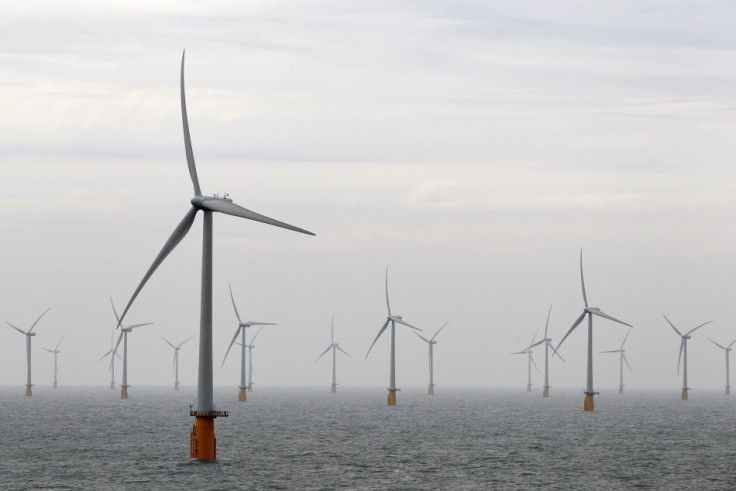UK and South Korea give joint statement on clean energy transition
The UK and South Korea have made a joint statement outlining plans for cooperation on the transition to a clean energy future based on renewable and nuclear technology.

Following a visit to South Korea, UK Energy Security Secretary Grant Shapps has stated the importance of international cooperation which moves both nations towards "energy independence" from Russian gas supplies, instead focusing on the development of renewable and nuclear technologies to achieve energy security for both nations.
Motivated by geopolitical concerns over dependence on Russian energy, and environmental concerns over climate change, Shapps met with Lee Chang-yang, Trade, Industry and Energy Minister of South Korea. The two nations presented a joint declaration identifying the need for a transition from fossil fuel dependence to a low-carbon energy future.
Shapps is set to encourage the South Korea to join the "power past coal alliance" (PPCA). This would entail South Korea moving its "coal power phase-out date" forward from 2050 to 2030. The PPCA alliance was launched by the British and Canadian governments in 2017 at COP23 and is part of the international effort to deliver the Paris Agreement. The PPCA advocates the objective of eliminating coal as an energy source by 2030 in the EU and OECD.
International and national context
Shapps' visit follows the UK's recent accession into the Comprehensive and Progressive Agreement for Trans-Pacific Partnership (CPTPP) and also comes ahead of the upcoming G7 meeting in Sapporo. On the 15th and 16th of this month, at the "Meeting on Climate, Energy and Environment", G7 ministers are set to discuss plans for clean energy and Net Zero in adherence to the Paris Agreement.
Furthermore, the UK government recently published its plan to "Powering Up Britain". Motivated by Putin's invasion of Ukraine and the subsequent strains on energy security, the plan also entails the objective of increasing the supply of cheap low-carbon energy. It aims to make Britain a net zero nation by 2050 and to deliver some of the cheapest wholesale energy prices by 2035.
Motivation
According to Shapps, we are moving close to the point where remaining dependent on coal and gas power "no longer makes economic sense, let alone environmental sense". Accordingly, he subsequently the economic opportunities for Britain and South Korea in moving away from fossil fuels.
As well as referring to environmental and economic motivations, Shapps also emphasised the geopolitical need to "redouble" measures taken against the "weaponising" of energy markets by Putin's Russia. According to Shapps, reducing dependence on fossil fuels and moving towards renewables will "isolate Putin's Russia" within the international system.
In terms of British interests, Shapps' visit has allowed the UK to demonstrate its attractiveness to foreign investors in the renewable energy sector, as well as showing the wider international community the UK's potential to lead in forging cleaner forms of energy security that allow nations to avoid dependence on Russia.
Renewables and Nuclear
The UK and South Korea already collaborate in energy markets, with 60 per cent of South Korean offshore wind engineering contracts signed by UK companies, and South Korea investing in UK offshore wind. Currently, South Korea is developing 25 offshore wind projects, with the aim of supplying "12 GW of offshore wind by 2030". The UK aims to supply 50 GW of offshore wind by 2050, over three times the current 14 GW.
Shapps pointed to the example of the £515 million investment of SeAH Wind into a factory in Teesside, where offshore wind turbine manufacturing is set to take place. Crucially, the UK is an international leader in offshore wind power, with the UK second to China only in terms of offshore wind capacity. For example, EnBW and BP have plans for offshore wind projects in the UK.
The joint declaration stated the "united agreement" between the two nations that the supply of nuclear energy is a key factor that will help create "secure and affordable energy". The two nations are also set to create a three-decade partnership on nuclear energy, which is to cover safety standards and regulations. Plans include the agreement to build robust supply chains, as well as the sharing of the latest developments in advanced civil nuclear technologies.
Furthermore, an agreement was reached to "accelerate discussions" concerning the participation of South Korea in the UK's nuclear power plans.
More broadly, the creation of "Great British Nuclear" (GBN) is one of the proposals of the Powering Up Britain plan. GBN will be "responsible for driving delivery of new nuclear projects", ensuring that Britain meets the demands of global competition.
Lastly, the two nations discussed the prospect of cooperation on hydrogen power. Minister Lee highlighted the differing expertise of South Korea and the UK and the subsequent potential for the mutual exchange of technological capabilities.
© Copyright IBTimes 2025. All rights reserved.





















